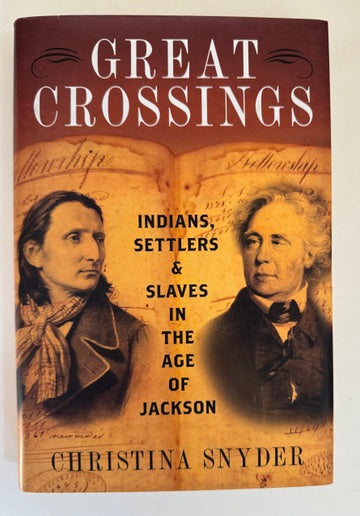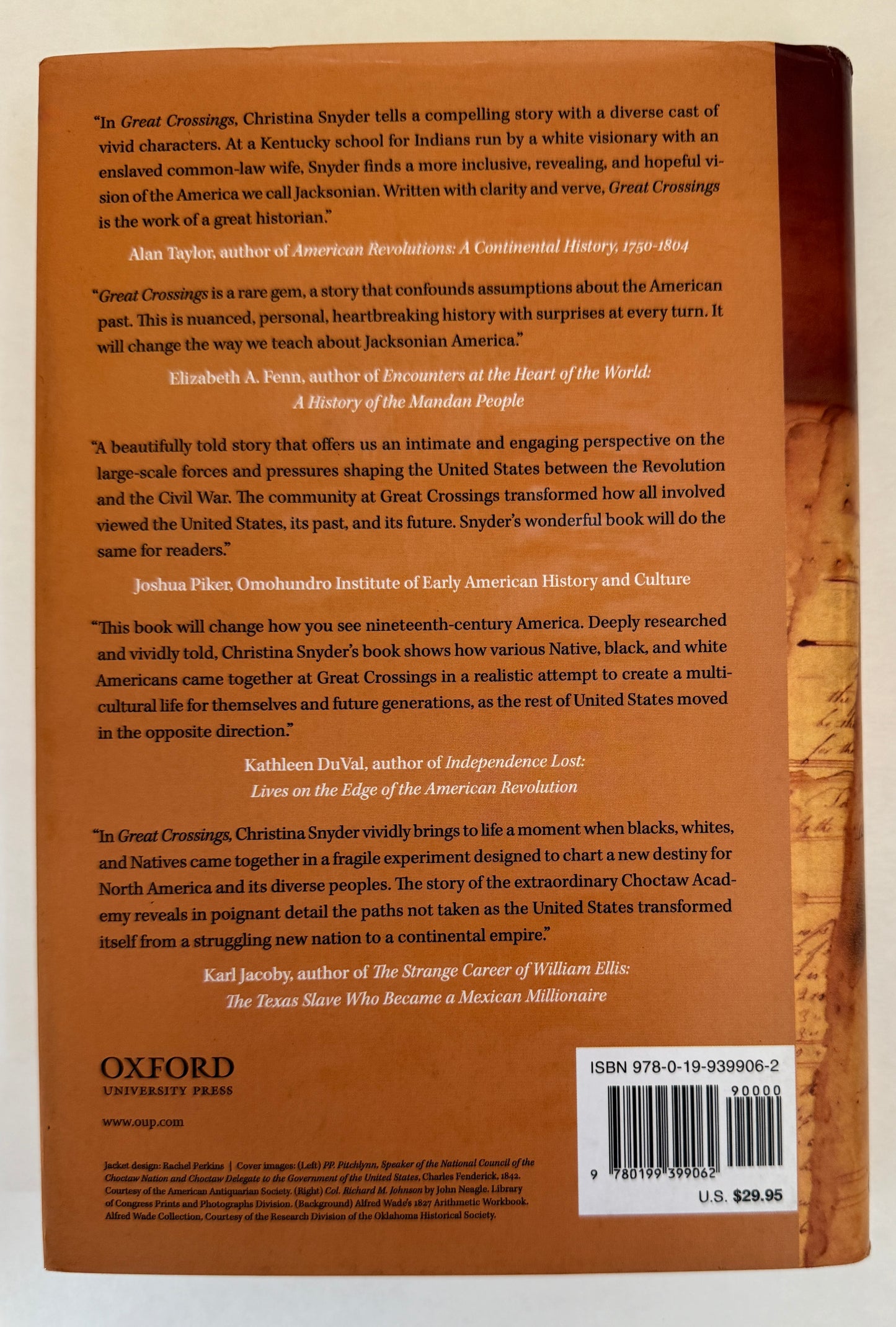Snyder, Christina
Great Crossings: Indians, Settlers, and Slaves in the Age of Jackson
Great Crossings: Indians, Settlers, and Slaves in the Age of Jackson
Couldn't load pickup availability
NY: Oxford University Press, 2017. First ed., first printing (full number line). xii, 402 pages: illustrations; 25 cm Fine in fine jacket. As new. Hardcover. ISBN: 9780199399062, 0199399069
"The book centers on the community that developed around Choctaw Academy, the first federally-controlled Indian boarding school in the United States, which operated from 1825 to 1848 on the Kentucky plantation of prominent politician Richard Mentor Johnson. In addition to white and Indian teachers, the school was supported by the labor of free and enslaved African Americans. Although initiated by the Choctaw Nation, the Academy eventually became home to nearly 700 boys and young men from seventeen different Native nations throughout the Southeast and Midwest. Beginning auspiciously as a voluntary, collaborative project between Native peoples and the federal government, Choctaw Academy catered to the children of Indian elites and advertised a classical education with a curriculum that included Latin, moral philosophy, and advanced study in law and medicine. In the 1830s, however, with the rise of scientific racism and Indian removal, the curriculum deteriorated, and the school itself became a battleground, where students, slaves, and staff clashed over race, status, and the future of America. Choctaw Academy both anticipated and contrasted with later Indian and African American schooling experiences, but my project addresses a much broader historiography as well. Great Crossings reveals much about the gap between racial ideology and everyday practice as well as cross-cultural ideas about class and gender, and American and Indian notions of sovereignty during a crucial era in the continent's history. Arguing that, for people of color, the colonial era extended into--and even accelerated in--the early to mid-nineteenth century, Great Crossings explores the complex ways in which colonized people responded to early U.S. imperialism"--Author's description from Indiana University Bloomington, Department of History websiteContents: Introduction: the great path?. Warriors. A family at the crossing. Scholars. Indian gentlemen and black ladies. Rise of the leviathan. The land of death. Rebirth of the Spartans. The vice president and the runaway lovers. Dr. Nail's Rebellion. The new superintendent. Orphans among strangers. Indian schools for Indian territory. Conclusion: paths to the future.
Share






